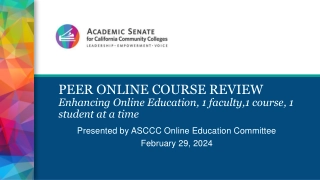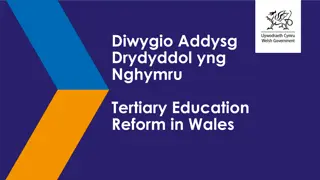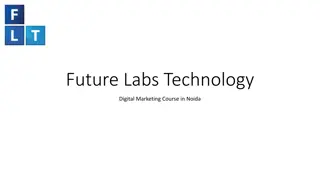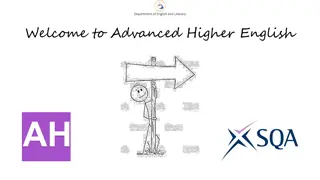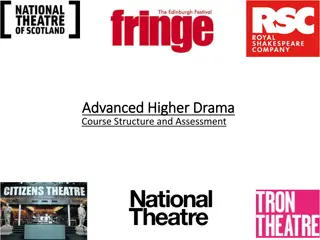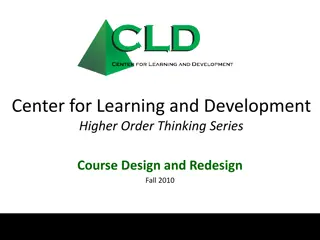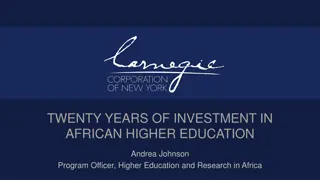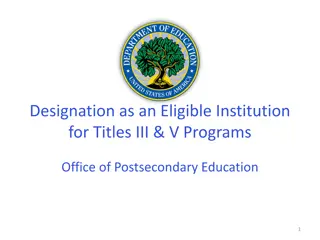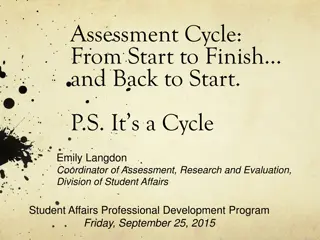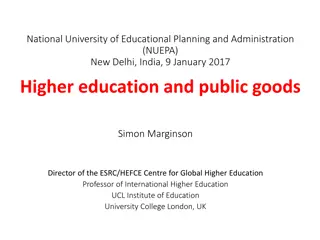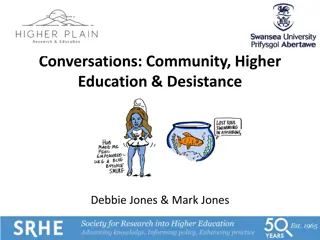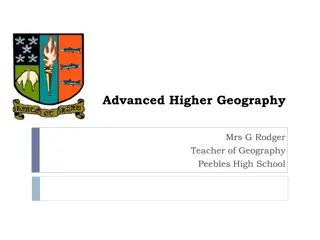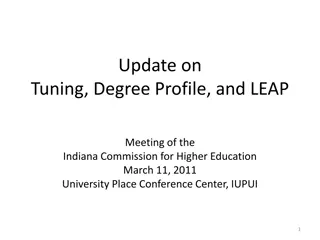Higher Education Course Guide
Explore essential and useful subjects for various higher education courses like Accountancy, Engineering, Law, Medicine, and Physics. Discover the recommended subjects based on your interest in Mathematics, Biology, Chemistry, Physics, and more to pursue a successful career in your desired field.
Uploaded on Sep 24, 2024 | 0 Views
Download Presentation

Please find below an Image/Link to download the presentation.
The content on the website is provided AS IS for your information and personal use only. It may not be sold, licensed, or shared on other websites without obtaining consent from the author.If you encounter any issues during the download, it is possible that the publisher has removed the file from their server.
You are allowed to download the files provided on this website for personal or commercial use, subject to the condition that they are used lawfully. All files are the property of their respective owners.
The content on the website is provided AS IS for your information and personal use only. It may not be sold, licensed, or shared on other websites without obtaining consent from the author.
E N D
Presentation Transcript
Course Essential subjects Useful subjects Accountancy Maths* Maths, Business Studies, Economics Architecture None Art, Maths, DT, Physics Biochemistry Chemistry, 1 from Maths/Biol/Phys Maths, Biology, Physics Chemical Engineering Chemistry, Maths Physics Chemistry Chemistry, 1 from Maths/Biol/Phys Maths, Biology, Physics Computer Science Maths* Computing, Further Maths Dentistry Chemistry, Biology*, Maths* Physics Economics Maths* Economics, Business Studies
Course Essential subjects Useful subjects Engineering Maths, Physics Further Maths, Computing Geography Geography*, 1 from Biol/Chem/Phys* Biology, Chemistry, Physics Law English* History, Politics Maths Maths, Further Maths* Further Maths, Physics Medicine Chemistry, Biology*, Maths* Maths, Physics Modern Languages Varies by university Nursing and Midwifery Biology Chemistry, Physics Pharmacy Chemistry, 1 from Biol/Maths/Phys Biology, Maths, Physics
Course Essential subjects Useful subjects Physics Maths, Physics, Further Maths* Further Maths Physiotherapy Biology, 1 from Maths/Chem/Phys* Chem, Maths, Physics, Psychology Psychology 1 from Biol/Chem/Maths/Phys* Biol, Chem, Maths, Phys, Psychology Sports Science 1 from Biol/Chem/Maths/Phys* Biol, Chem, Maths, Physics, PE Teacher Training At least 2 facilitating subjects Veterinary Science Chemistry, Biology, Maths or Physics Maths, Physics, Further Maths





